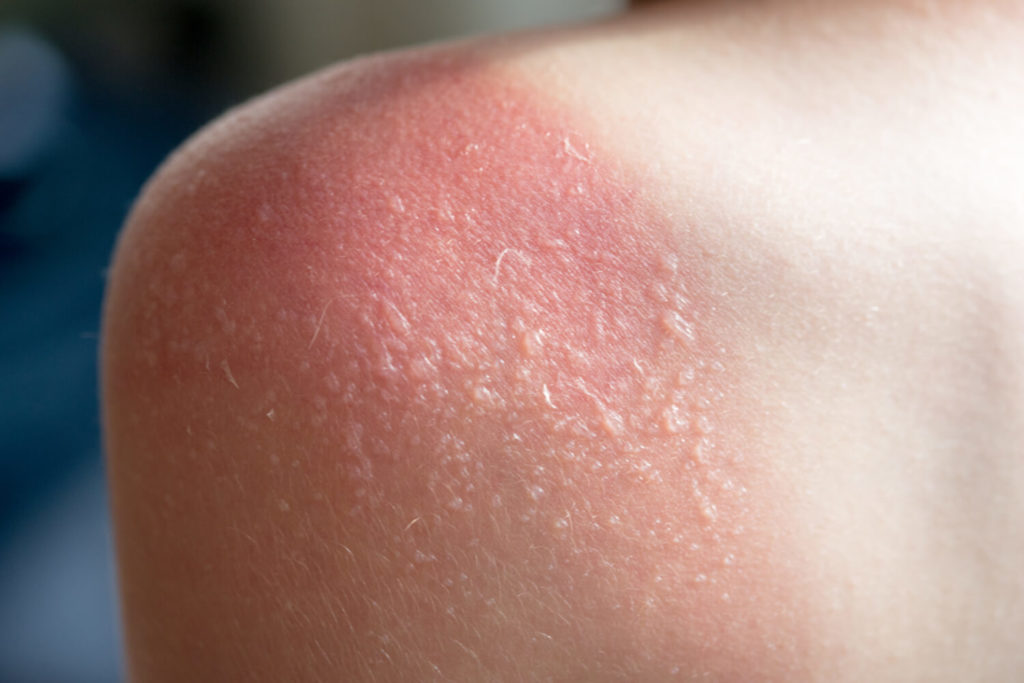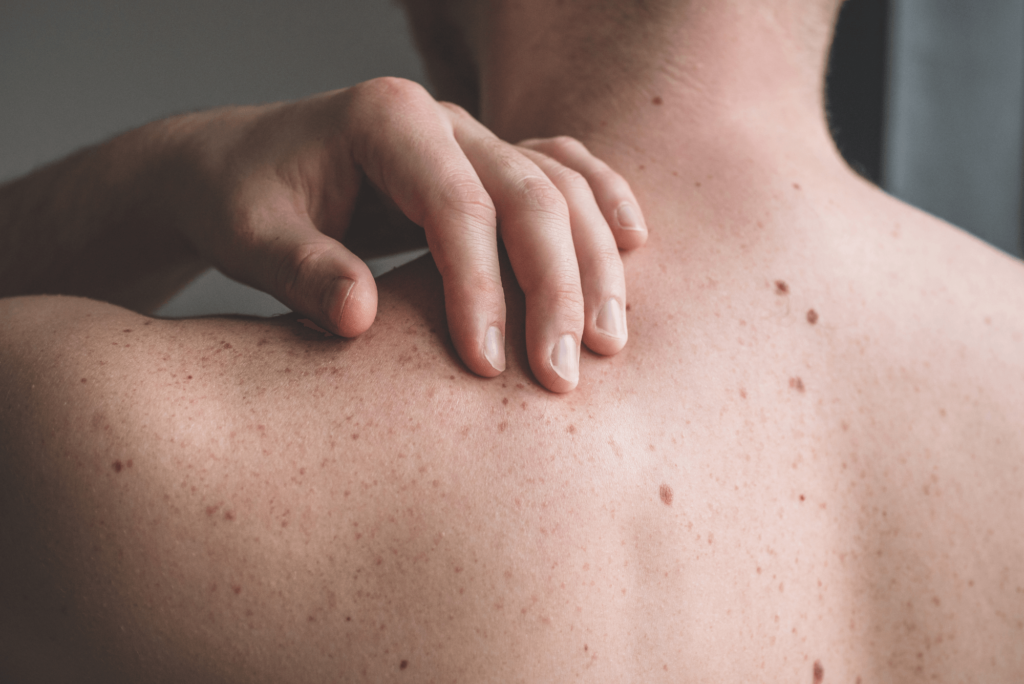The Relationship Between Diet and Acne
Diet is one of the foundations of health. Poor diets increase the risk of medical conditions in every system of the body. So how does diet affect dermatology?
Dr. Jonette Keri, Dermatology, University of Miami, recently shared a series of findings related to diet and skin conditions, specifically acne, on the Dermatology Digest podcast. The findings she shared focused on the effects of sugar, dairy and lifestyle medicine on acne.
What Is Lifestyle Medicine?
Lifestyle medicine is a movement that focuses on treating health conditions by helping patients change their lifestyles. For example, if a person is facing the risk factors that lead to higher instances of American diabetes and obesity, improving diet and exercise habits can reduce and mitigate those risks.
Similarly, smoking and excessive alcohol consumption also put the body more at risk for several conditions. Therefore, changing these habits often help patients significantly improve their health.
So, Does Diet Really Affect Acne?
In short, yes. Although, there are a few misconceptions out there about which foods cause acne.
Does Chocolate Cause Pimples?

No. Eating chocolate is not directly linked to the development of acne vulgaris. Dr. Keri mentioned that the misconception of chocolate causing acne goes back to one of the original studies in the 1960s. She postulates that this study lacked sufficient data, and yet because there wasn’t as much research available back then, the claims weren’t refuted until the past few years.
Dr. Keri also points out that the study did not account for the effect of dairy products on acne. Because of this oversight, Dr. Keri believes that the study requires more research, especially because chocolate often contains dairy and could have caused false-positive results.
Does Eating Sweets Cause Acne?
Whether eating candy and sweets causes acne is sort of like the chocolate question. There are too many ingredients and variations in candy in order to say scientifically and definitively that eating sweets cause acne.
However, the one thing all common types of sweets have in common is their high sugar content. And while there’s no evidence that eating foods with high levels of added sugar actually causes acne, regularly consuming foods with a high glycemic index does weaken the immune system. Therefore, a Western diet high in sugar increases the likelihood of either developing or worsening acne.
No research to suggest that diet causes acne. However, diet can worsen acne, specifically in patients with high glycemic (sugar) diets. Two recent studies show that diets higher in sugar (soda, tea, candy, processed foods) correlated with worsened acne in teen boys and women with metabolic polycystic ovary syndrome (PCOS).
So if your diet consists mainly of high glycemic index (GI) foods, your acne may improve when you reduce your sugar intake. Keep in mind that results typically take at least 12 weeks to notice.
What About Dairy?
No research to suggest that dairy causes acne. However, there is significant evidence that the fat in milk has some protective effect on a person’s health, including against acne.
This is not new information, but we continue to confirm that skim milk products deprive the body of some necessary fat intake. The fat in milk has a protective effect on the body that we don’t yet understand, but know to be true.
Takeaway: There is no need to eliminate dairy intake to improve acne. You should, however, allow for some fat in the dairy products you consume, unless directed otherwise by a healthcare provider. Don’t exclude two percent milk from your diet, and don’t be afraid to get the full-fat yogurts.
The Role of the Gut Biome in Acne and Inflammatory Skin Conditions
There is a significant connection between the gut biome and the skin. We know that high carb diets and diets high in processed foods set off a series of processes in the gut which translate into more inflammation in the skin as well as other parts of the body.
Replacing the lost “good bacteria” from poor diet and antibiotic use does have a positive effect on inflammatory skin conditions. Though there are no specific recommendations for probiotic use, patients can try incorporating foods with probiotics added to them such as yogurt or acidophilus milk. Alternatively, patients can also use an OTC probiotic such as Align to support healthy gut function.
The Role of Diet in Acne

What Are Good Health Foods or Supplements for Acne?
Other nutrients that may be useful for improving acne and rosacea include Zinc and Omega 3 fatty acids. To incorporate zinc and omega 3 fatty acids into your diet, simply consider adding foods such as nuts, beans, eggs, and healthy plant oils on a regular basis. Many OTC multivitamins contain Zinc and Omega 3 as well.
What are the best foods for your skin?

The best foods for your skin are minimally processed foods that are high in essential nutrients that your body cannot produce on its own. You will want foods that contain healthy fats, beta carotene and vitamins.
- Salmon
- Herring
- Walnuts
- Avocados
- Sweet potatoes
- Carrots
- Peas
- Lentils
- Kale
- Spinach
- Tomatoes
Don’t Overthink Diet and Acne
Healthy dietary changes can benefit many of the body’s systems, including the skin. Specifically, a diet full of high glycemic foods has the broadest effect on inflammatory skin conditions like acne, rosacea, and psoriasis. So enjoy a soda or chocolate cake every now and then, but remember all good things in moderation!
Bonus Skin Care Advice
What is the best way to get clear skin?
If you have your diet under control, or just need help with clearing up acne, it is essential that you establish a regular skin care routine. No matter what your skin type is, a skin care routine will help you reduce current skin health problems and prevent further issues from developing. Especially, if you already experience mild acne. Check out the skin care regimen blog.
What should I do if I have dry acne-prone skin?
Dry skin is often more sensitive and prone to breakout if not taken care of properly.
- Don’t Over-Wash your Skin
- Use a Light Moisturizer
- Cleanse Less Often
- Use A Non-Soap Gentle Cleanser
- Avoid Over-Exfoliating
- Don’t Use Make Up as Often
- Use a Humidifier
Additionally, you should look for skin care products that contain hyaluronic acid, and avoid products containing alcohol. These products increase how quickly your skin loses moisture, thus leaving you dried out.
How can one get rid of acne as quickly as possible?
First of all, you shouldn’t try to squeeze or pop pimples when they develop. Popping acne lesions can damage your skin leaving you with any number of acne scars.
Salicylic acid is a particularly helpful substance in the fight against acne. Try to find makeup products or skincare products to add to your routine.
Fighting acne is a long-term battle. As a result, quick fixes should not be the go-to answer. Read our past blog article for more about acne conditions and treatments.
Schedule an Appointment With Tennessee Telederm
If you need help managing acne, rosacea, eczema, or another dermatology condition, visit our Get Started page to set up an appointment today. Skip the waiting list, traffic, and the waiting room with our online dermatology services.




